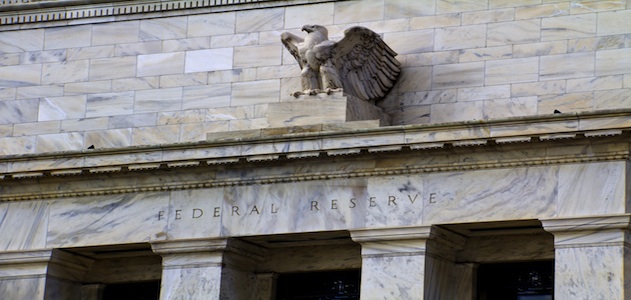The United States economy feels like it's in wildfire mode, with risks suddenly changing course and spreading into other areas. Global investors are growing weary of constant smokejumping.
Just as the government shutdown appears to have been temporarily abated, the debt ceiling remains unresolved past February and while this put off expectations of the taper until 2014, it's killing high yield trades in dollar-denominated credit.
"We're beginning to see a greater number of investors increase their exposure to euro-denominated credit at the expense of dollar denominated debt," according to an email from London-based Société Générale analyst Suki Mann.
"Both markets have swathes of sidelined cash looking for a home. U.S. dollar corporate risk though has been more volatile from both a spread and return perspective because of the taper risks – but it is more liquid (although this doesn't mean much) than credit in Europe."
If you ask me, the political brinkmanship in this country — America, home of the dollar — is driving this trepidation toward monetary policy.
In theory the two events, the shutdown and the taper, should feel mutually exclusive. The Federal Reserve, through ideology and by design, is meant to be apolitical. Arbitrary control of the nation's money, along with confidence to meet the country's debts, provides a measure of confidence to the investor space.
There will always be talk of flight from one currency to another and the dollar's role as the global currency backstop in trading is not necessarily undermined by recent events. But what is happening, is that investors are taking money out of our investment-grade and high-yield corporate bond markets.
But why the Euro, isn't that place also rife with political risks, possible sovereign defaults and a macroeconomic yo-yo recession?
Well, quite simply, that's where the best performance is coming from. It's a self-fulfilling prophecy—the more investors believe; the more investors will gain confidence. After all, Mann seems confident in better-sustained economic growth in the United States as it compares to Europe.
In the corporate bond world, however, economic realities aren't everything.
Mann explains: "In Europe, technicals trump fundamentals by a long way where persistently weak (usually negative) economic growth maintains the status quo of low rates, lower yields (than in the US) and a continued strong bid for corporate bonds, so long as the default rate stays low."
In other words, Europe need only recovery at a better rate, which isn't difficult considering the low benchmark and expectations surrounding credit market rates and the backstop of a more dedicated European Central Bank.





